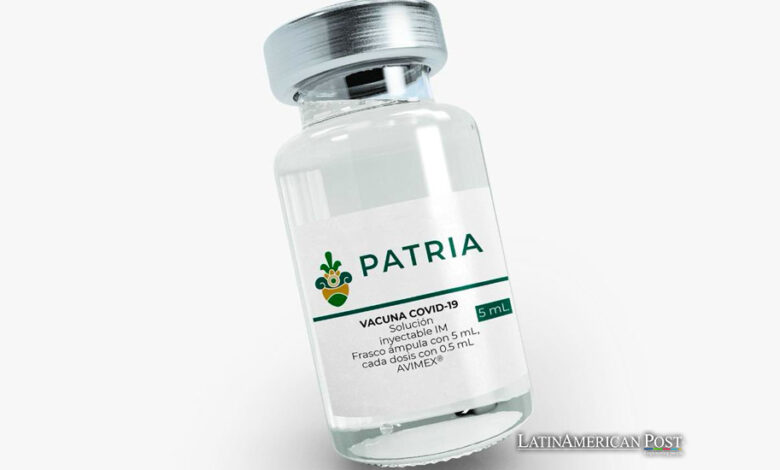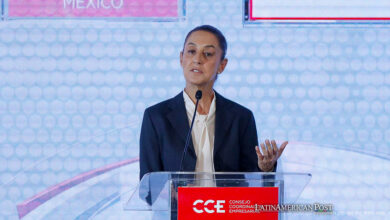Mexico’s ‘Patria’ Vaccine Aims for Emergency Use Approval

Mexico’s domestically developed COVID-19 vaccine, ‘Patria,’ moves closer to obtaining emergency use authorization for adults as it receives favorable reviews from the health regulator’s advisory committee.
In a significant stride towards self-reliance in pandemic response, Mexico’s ‘Patria’ vaccine, a homegrown solution to the COVID-19 crisis, has edged closer to receiving adult emergency use authorization. In a special session, the New Molecules Committee (CMN) of the Federal Commission for Protection against Health Risks (Cofepris) in Mexico unanimously agreed that the data presented by the national manufacturer Avi-Mex was sufficient to move forward.
However, this decision is not the final word on ‘Patria’s’ authorization, as Cofepris, the regulatory agency, clarified that the committee’s approval is an auxiliary step in the process. The committee’s endorsement is a crucial leap but not the ultimate green light for the vaccine’s broader deployment.
Committee Members Laud ‘Patria’s’ Robust Immune Response
Arturo Reyes, a member of the CMN, acknowledged the robust immune response to COVID-19 demonstrated by ‘Patria,’ its safety, and adherence to international manufacturing standards. Lena Ruiz, also from the CMN, commended the clarity and substantiation of the documentation and presentation. She suggested that, given ‘Patria’s’ national development, ongoing pharmacovigilance should be maintained, particularly to monitor long-term effects in volunteers who have received the vaccine.
Miguel Ángel Guevara, summarizing the committee’s findings, noted that ‘Patria’ showed no significant adverse events in preclinical and clinical trials across different phases, leading them to consider it a safe vaccine.
Cofepris’s Council of Molecules experts emphasized the need to clarify the timing for administering booster doses, considering the virus’s multiple variants and mutations within a year. They also advised against administering the vaccine to patients with severe illnesses like diabetes, hypertension, and immunodeficiency, citing potential risks and reduced efficacy.
A Collaboration of Avi-Mex and National Councils
Developed by Avi-Mex in collaboration with the National Council of Humanities, Sciences, and Technologies (Conahcyt) and other public funding bodies, ‘Patria’ was presented to the committee with comprehensive data covering preclinical results, safety, immunogenicity, and risk management plans.
Bernardo Lozano, director of Avi-Mex, described ‘Patria’ as a viral vector vaccine based on the Newcastle disease virus (NDV), highlighting its safety, flexibility, non-pathogenic nature, and ease of administration. Adolfo García, presenting the preclinical results, reported that the vaccine generated antibodies against SARS-Cov-2 and was safe in mice, hamsters, pigs, and rats.
Researcher Samuel Ponce, discussing human trials, noted no significant clinical issues, concluding that the vaccine is safe for both initial and booster doses. Avi-Mex acknowledged conducting tests on over 3,000 subjects to meet World Health Organization (WHO) standards.
Efficacy Against Variants and Continued Clinical Trials
The vaccine’s efficacy against variants such as Omicron and subsequent mutations is slated for further clinical trials. Its development preceded the emergence of these variants, which caused a spike in infections nearly a year after the health emergency was declared in Mexico in March 2020.
The progression of ‘Patria’ represents a critical juncture in Mexico’s fight against COVID-19. It’s not just a vaccine; it symbolizes national scientific capability and a move towards healthcare autonomy. In a world of stark vaccine access inequalities, ‘Patria’ offers hope for a more equitable solution.
Long-Term Safety
The journey of ‘Patria’ from conception to potential emergency use authorization underscores the importance of national initiatives in global health crises. It highlights the role of local manufacturing in vaccine distribution and the need for diverse approaches to pandemic response.
However, challenges remain. Efficacy against new variants and long-term safety are pivotal factors that will determine ‘Patria’s’ ultimate success and acceptance. The commitment to continued clinical trials and establishing a robust pharmacovigilance framework will be vital in navigating these challenges.
Also read: Health Authorities Confirm that the ‘JN.1’ Variant of COVID-19 is Circulating in Colombia
The development of ‘Patria’ is a testament to Mexico’s dedication to scientific innovation and public health resilience. As the vaccine moves closer to potential authorization, it promises enhanced national health security and a significant step toward equitable vaccine access. The world watches as Mexico charts a path that could inspire other nations to invest in homegrown solutions to global health challenges.





